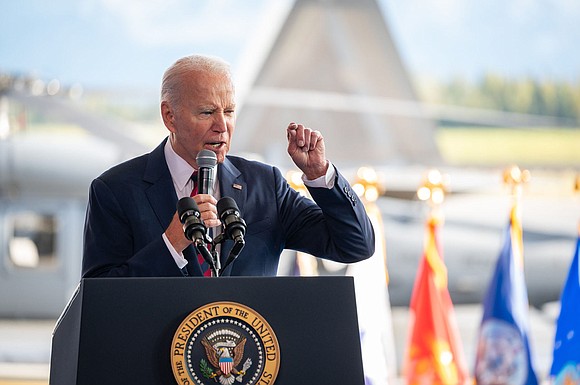Biden-Harris Administration Unveils Groundbreaking Strategies to Foster Diversity & Opportunity in Higher Education
Francis Page Jr. | 9/28/2023, 3:12 p.m.
In a pivotal move, the Biden-Harris Administration, steadfast in their commitment to fostering diversity and opportunity in higher education, has unveiled a transformative report titled, “Strategies for Increasing Diversity and Opportunity in Higher Education.” This seminal document serves as a beacon, guiding states and higher education leaders to prioritize and implement initiatives that cultivate diversity across college campuses. It meticulously delineates evidence-based strategies in outreach, admissions, financial aid, and college completion, responding to the landmark Supreme Court decision in Students for Fair Admissions, Inc. v. President and Fellows of Harvard College and Students for Fair Admissions, Inc. v. University of North Carolina et al. (collectively “SFFA”).
U.S. Secretary of Education, Miguel Cardona, expressed, “One of the cruelest ironies in America’s current higher education system is the disparity in resources between inclusive institutions and highly selective ones, which predominantly admit affluent applicants.” He emphasized that this report mirrors President Biden and Vice President Harris’ unwavering dedication to equal opportunity, offering a comprehensive roadmap for colleges and universities to enhance student body diversity.
This initiative underscores the Administration’s encouragement for higher education institutions and state leaders to utilize this resource, contemplating ways to broaden access to educational opportunities for all. The report elucidates steps to enhance socioeconomic and racial diversity in colleges, including:
• Investing in Targeted Recruitment: Collaborating with K–12 schools, community colleges, Historically Black Colleges and Universities, Tribal Colleges and Universities, and Minority-Serving Institutions, including Hispanic Serving Institutions.
• Meaningful Consideration in Admissions: Acknowledging the adversity students have faced, including financial constraints, geographical background, and experiences of hardship and discrimination.
• Increasing Affordability: Amplifying need-based aid and ensuring transparency in student aid application processes.
• Cultivating Welcoming Environments: Providing comprehensive support programs that bolster retention and completion rates.
This report is a testament to the Biden-Harris Administration’s swift and decisive actions following the SFFA decision, emphasizing their enduring commitment to advancing access to education for all Americans and promoting diversity in higher education in accordance with the law. The Administration continues to support the nation's colleges and universities in building pathways to upward mobility and preparing students from diverse backgrounds to flourish in our workforce.
Under Secretary James Kvaal remarked, “Our country’s greatest strength is the diversity of our people. We are calling upon state, college, and university leaders to renew their commitments to opportunity for all students.” The Administration is poised to collaborate with institutions nationwide to close equity gaps in higher education, ensuring all students can reap the benefits of college degrees and credentials.
Diverse college campuses are crucibles for fostering critical thinking, civic engagement, leadership skills, and cross-racial interaction. They provide a platform for students from varied backgrounds to pursue and attain the myriad benefits of postsecondary education, thereby ensuring their ability to thrive and compete in today’s global economy.
However, the persistent socioeconomic and racial gaps in higher education access cannot be overlooked. Students of color and those from lower-income backgrounds often face challenges in application, admission, and completion of their programs, especially at highly-selective institutions equipped with vast resources.
In crafting this report, the Department scrutinized peer-reviewed research and promising efforts underway at various institutions. Higher education leaders are encouraged to use this evidence in reviewing their admissions policies and exploring strategies to make their campuses diverse and welcoming.
Following the SFFA decision, the Department, in conjunction with the U.S. Department of Justice, issued resources that distill the Court’s core holding and provide examples of lawful steps that colleges and universities can undertake to achieve a diverse student body.
In continuation of these efforts, the Department is exploring ways to collect and publish additional information on college applications and enrollment trends, disaggregated by various measures. This initiative aligns with the Biden-Harris Administration’s historic efforts to ensure access to higher education for all students, including securing a historic increase in the Pell Grant, reforming the student loan system, and supporting HBCUs, MSIs, and community colleges.
For more information on the groundbreaking work the Biden-Harris Administration is undertaking to build success for all students, click here.
Conclusion:
The Biden-Harris Administration’s comprehensive report is a monumental step towards reshaping the landscape of higher education. It serves as a guiding light for institutions across the nation, encouraging them to embrace diversity and inclusivity, thereby fostering an environment where every student, regardless of their background, can thrive and succeed.








